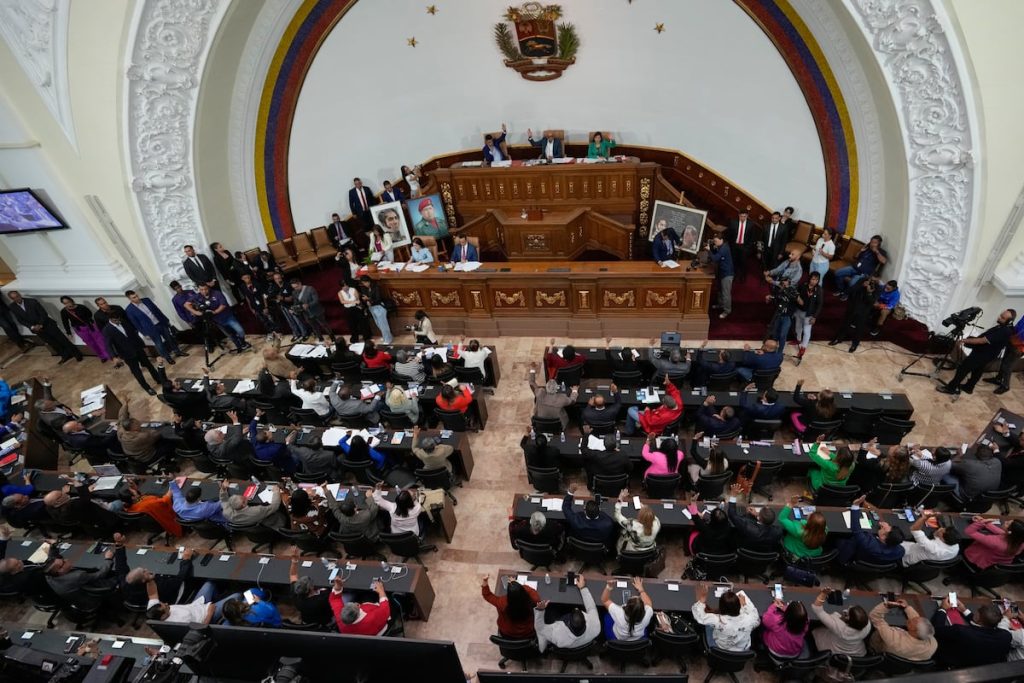The Venezuelan National Assembly session did not have the issue on its agenda for the day. However, President Jorge Rodríguez has reported that a proposal to urge the national Executive president to evaluate breaking diplomatic and commercial relations with Spain has been submitted. This proposal, which has not yet been approved, comes after several weeks of tensions that began with the grant of asylum to opposition candidate Edmundo González, who was forced into exile in Madrid at the beginning of the month, and further escalated with the detention of two Spaniards in Venezuela who have been implicated in plots against President Nicolás Maduro. The proposal also rejects a resolution by the “fascist right” in the Spanish Congress to recognize González as the elected president after the disputed elections on July 28, in which Maduro was declared the winner amid fraud suspicions.
Despite Rodríguez’s harsh statements, Caracas and Madrid have shown signs of maintaining channels of communication amid the diplomatic tensions. The Venezuelan foreign minister called the Spanish ambassador to his office, and meetings have taken place between representatives of both countries. The vice president of Venezuela also held discussions with executives from Repsol, indicating an attempt to ease tensions. However, recent detentions of two Spanish citizens in southern Venezuela have reignited tensions. Interior Minister Diosdado Cabello accused them of being terrorists without presenting evidence, with President Maduro also joining in. The families of the detainees claim they were on vacation and were arrested while taking photos. Foreign ministers from both countries have spoken about the case, with Spain requesting more information and expressing concerns about the lack of evidence for the accusations.
The Venezuelan government’s claims of a new conspiracy have grown, with Minister Cabello alleging the capture of a fourth American involved in suspicious activities. This individual was arrested in Caracas while taking photos of electrical, oil, and military facilities. Cabello did not reveal the detainee’s identity but claimed they were part of a plot against Venezuela. Another American detainee, allegedly the leader of the operation, has been linked to the CIA, along with two others. The United States has confirmed the detention of its citizens but denied any involvement in a conspiracy against Maduro. In addition to the American and Spanish detainees, a Czech citizen has also been arrested in connection with the alleged plots.
The proposal for breaking diplomatic and commercial ties with Spain in response to recent events has not been approved by the Venezuelan National Assembly. Despite the tensions, representatives from both countries have engaged in discussions to address the situation and seek a resolution. The detentions of Spanish and American citizens in Venezuela have added complexity to the situation, with accusations of terrorism and conspiracy being made by Venezuelan officials. The ongoing diplomatic crisis highlights the challenges faced by both countries in maintaining relations amid political turmoil and international pressure. More information and transparency are needed to address the accusations and concerns raised by the detainment of foreign citizens in Venezuela.














